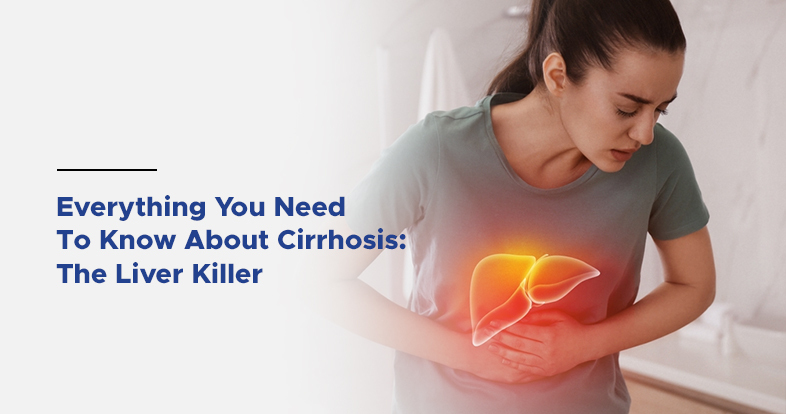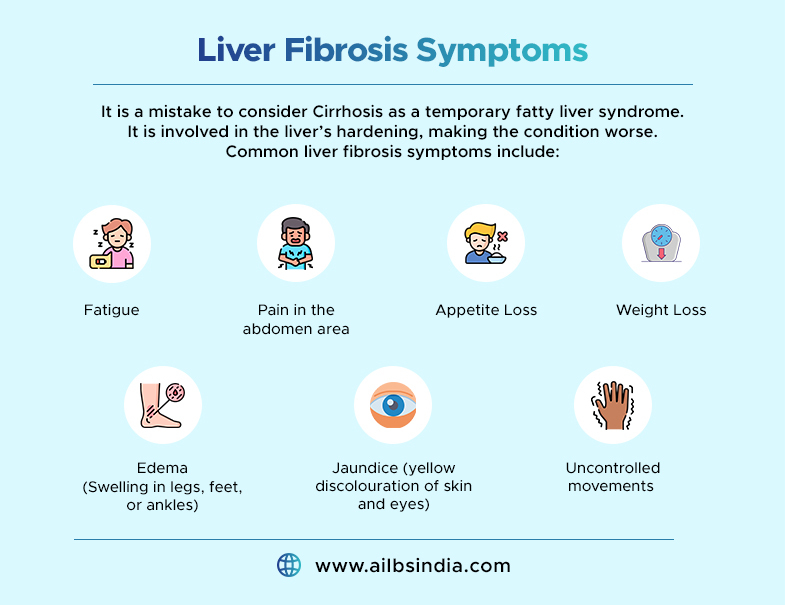
From breaking down the food we eat to filtering toxins and waste from our blood, our liver is one of the hardest-working organs in our body. However, despite its resiliency, our liver can be easily damaged by exposure to harmful toxins, chemicals, and unhealthy lifestyle habits.
This is where the dangers of liver cirrhosis come into play. When repeatedly exposed to these harmful elements, the liver can become severely damaged and scarred beyond repair, leading to end-stage liver disease. And let me tell you, Cirrhosis is often called the “liver killer” for a reason.
Here is everything you need to know about Cirrhosis, often called the liver killer.
Our Liver can self-heal. When a Liver tries to repair and replace the damaged cell, the process leaves a large amount of scar tissue. It is known as Fibrosis, the third stage of liver damage. Cirrhosis is end-stage Fibrosis and is terminal.
It is the stage when scar tissues have replaced the majority of the normal liver tissues. Most of the liver hardens and dies during Cirrhosis, and it cannot perform normal functions.
Compensated cirrhosis and decompensated cirrhosis are the two clinical liver cirrhosis stages. Although the stages are dynamic and progressive, switching back and forth from the decompensated to the compensated level is conceivable.
Repeated and excessive alcohol abuse is one of the primary reasons for alcoholic liver Cirrhosis. Alcoholic liver disease (ALD) accounts for nearly 20% to 50% of the prevalence of Cirrhosis of the Liver. 6 out of 10 patients with end-stage liver cirrhosis have a life expectancy of only four years.
In addition to this, chronic infections with the hepatitis B virus and hepatitis C virus (HCV) also contribute to Cirrhosis of the Liver. According to experts, hepatotropic viruses A, B, C, and E replicate in the liver and initiate liver enzymes, causing liver inflammation and damage.
It is a mistake to consider Cirrhosis as a temporary fatty liver syndrome. It is involved in the liver’s hardening, making the condition worse. Common liver fibrosis symptoms include:

If cirrhosis of the liver can be detected early, there is a better chance to improve liver health. If the scarring in the liver is not too much, medicines and stopping alcohol use can reduce it. The best way to check the damage in the liver is to do a liver biopsy. In a biopsy, a small piece of liver tissue is removed and tested. Some other blood tests can also help diagnose cirrhosis from alcohol.
Liver cirrhosis needs full-time care and treatment under an expert. It is advisable to consult an expert immediately when the first liver fibrosis symptoms appear. Only after running all the tests and detailed diagnoses can the doctor properly assess the extent of the damage and give the best possible liver cirrhosis treatment. In some cases, it might be possible to improve a damaged liver life through medication and lifestyle changes.
People with end-stage liver cirrhosis may need a liver transplant at one time or the other. In most cases, medications, as well as treatment of alcohol abuse, can only improve life expectancy. Moreover, people with Cirrhosis may end up with a completely damaged liver for no fixed reason.
With a success rate of 95%, Dr Vivek Vij, the best liver transplant doctor in India, has helped patients overcome liver cirrhosis and live happier, healthier, and longer lives. If you also suffer from consistent liver ailments, it is best not to ignore it and to consult an expert as soon as possible. He is credited with developing living donor surgery and practising safety protocols to achieve a 100% donor safety profile. So whether you want liver cirrhosis treatment cost in India or want treatment for any kind of liver-related ailments, Dr Vivek Vij is here to help you.
In conclusion, cirrhosis of the liver is a serious and potentially deadly condition that affects millions of people worldwide. Whether it’s caused by alcohol cirrhosis, viral hepatitis, or other factors, the damage to the liver can be irreversible if left untreated. However, there is hope.
Remember, prevention is key. Avoiding excessive alcohol consumption, maintaining a healthy diet, and getting regular check-ups can go a long way in preventing cirrhosis of the liver.
If you want to know more about this disease or liver cirrhosis treatment cost in India, Dr Vivek Vij is here to help you. He will guide you and give you the best treatment so you can live the rest of your life without danger. So, let’s work together to raise awareness and fight back against this silent killer.
What are the liver fibrosis symptoms?
Ans: The liver fibrosis symptoms can vary depending on the severity of the condition but may include fatigue, weakness, nausea, loss of appetite, jaundice, and abdominal pain or swelling.
What does a cirrhosis liver look like?
Ans: In advanced cases, liver cirrhosis can appear shrunken, nodular, and discoloured. This is due to the buildup of scar tissue, which replaces healthy liver tissue and impairs liver function.
What are the stages of alcoholic liver disease?
Ans: Fatty liver, alcoholic hepatitis, and cirrhosis are the three phases that commonly characterise the progression of alcoholic liver disease. The earliest and most prevalent stage of fatty liver is marked by fat accumulation in the cells of the liver. The liver will expand and become inflamed if you have alcoholic hepatitis. At the same time, cirrhosis is the last and most severe stage, in which the liver scars and dramatically loses function.
Is liver cirrhosis reversible?
Ans: While cirrhosis of the liver is not reversible, early diagnosis and treatment can help slow or stop the progression of the disease. This may involve lifestyle changes such as avoiding alcohol and maintaining a healthy diet and medications to manage symptoms and prevent complications. In severe cases, a liver transplant may be necessary.


